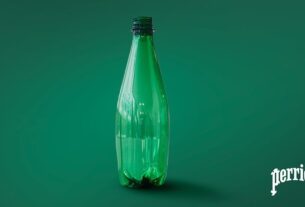Germany – Beckers Group, a global coatings company, is partnering with BioBTX and Symeres to incorporate recycled plastic raw materials into its paints.
By creating a supply chain for sustainable aromatic monomers made from plastic waste, Beckers aims to promote circularity and reduce emissions. This article explores the goals, technology, potential impact, and challenges surrounding Beckers’ circular chemistry initiative, marking a significant step forward in the pursuit of a greener and more sustainable future.
Circular chemistry initiative
The primary goal of Beckers’ collaboration with BioBTX and Symeres is to transform waste plastic into raw materials that can be used to create sustainable paints. By harnessing the power of circular chemistry, the company seeks to break free from the traditional linear economy model, where products are disposed of after use, and instead adopt a circular economy approach. This entails recycling and reusing materials to minimize waste and its environmental impact.
The circular chemistry process involves several key steps, starting with BioBTX’s method of converting waste plastic into BTX (benzene, toluene, and xylene). The xylenes derived from this process are then oxidized by Symeres to produce aromatic phthalic monomers. These monomers serve as vital components for polyester resin production, constituting a significant portion of the resins used in coatings.
World-first circular resin
Beckers aims to take circular chemistry to new heights by producing a coil coating containing phthalic anhydride made from plastic waste, a world-first achievement. This innovative breakthrough paves the way for more sustainable resins and paints, demonstrating Beckers’ commitment to incorporating high-quality materials from recycled plastic.
The circular chemistry pilot has far-reaching sustainability benefits. By upcycling thousands of tonnes of waste plastic into high-value products, the initiative helps prevent plastic waste from further burdening the environment. Moreover, the circular process has the potential to reduce carbon emissions significantly. Early estimates suggest that using recycled materials can lower a white coating’s carbon emissions by at least 10 percent compared to virgin raw materials, aligning with the global push for carbon reduction.




